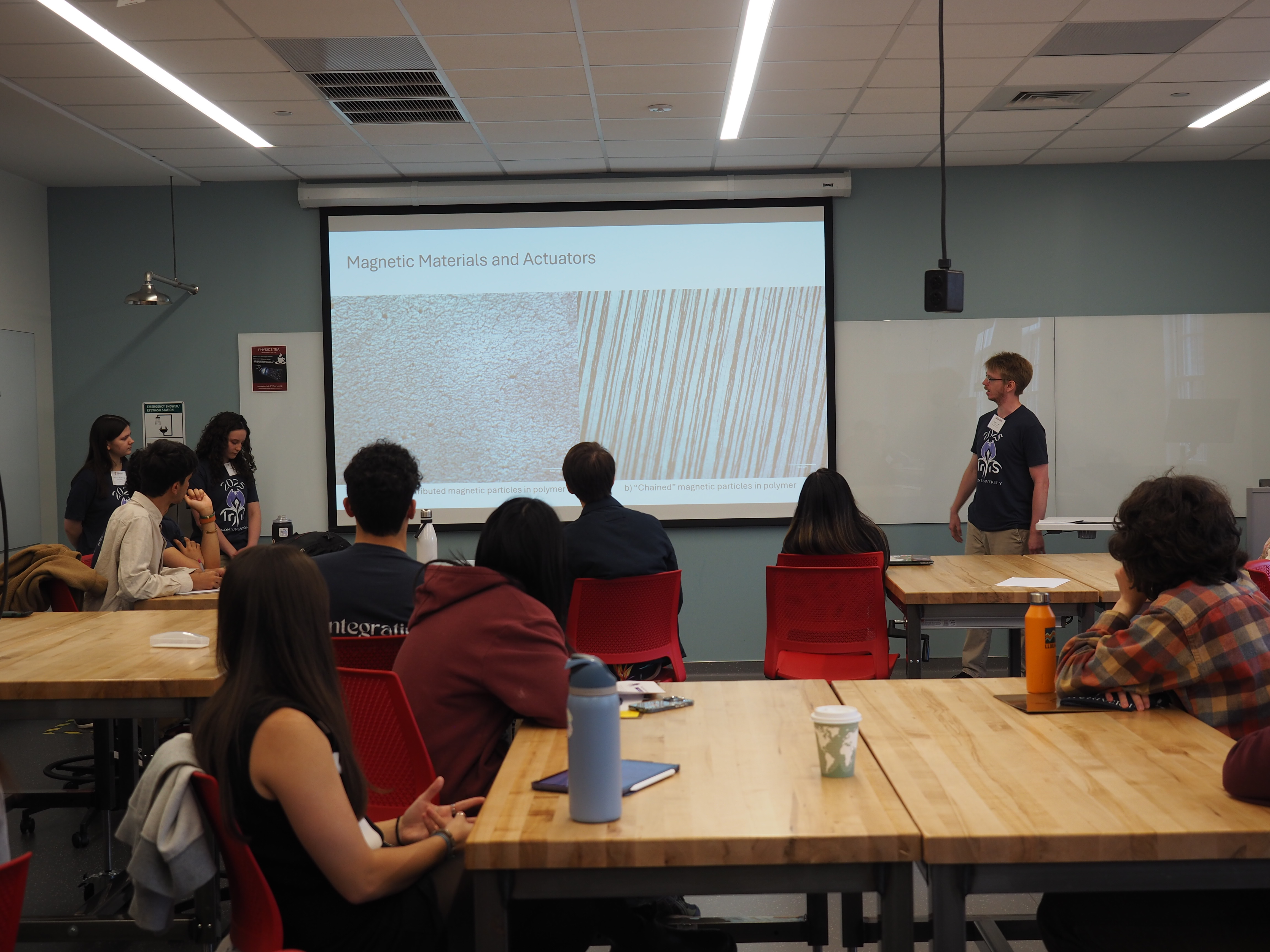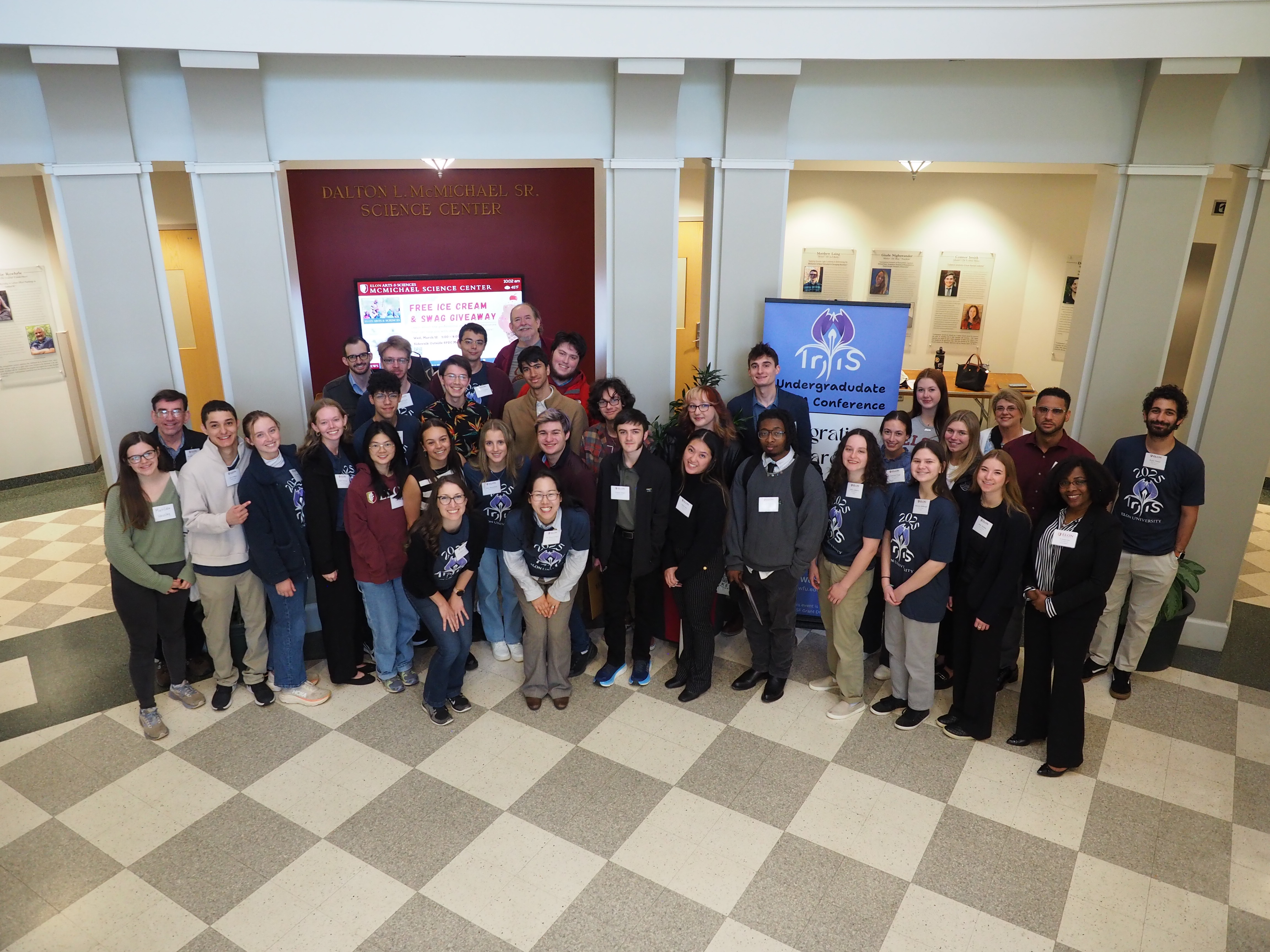The regional STEM conference for undergraduate students, called Integrating Research in Science (IRIS), celebrates interdisciplinary interactions by bringing together the realms of STEM and STEM-related fields.
Nearly 60 undergraduate students and faculty from a wide spectrum of STEM fields attended the regional STEM undergraduate conference, Integrating Research in Science, hosted by Elon University and held April 12 in McMichael Science Building and Innovation Hall.
Integrating Research in Science (IRIS), an innovative student-led conference, aims to celebrate interdisciplinary interactions by bringing together the realms of STEM and STEM-related fields. This one-day conference for undergraduates is designed to allow students to promote their research, network among professors and peers, and prepare for their academic and professional careers by attending expert panels.
By participating in IRIS, students engage in a collaborative environment that harbors values in creating a strong sense of community. Moreover, by bringing many departments and students with different interests together, students will explore new ideas within a diverse range of fields and be able to delve into the rich progress that cross-disciplinary interactions have to offer.
“Our students did such a wonderful job that they have collaboratively and effectively worked using each individual’s expertise and interest,” said Associate Professor of Mathematics Hwayeon Ryu, who is the lead faculty member for the IRIS conference. “Without their dedication and hard work, this conference would not have been successful. As a result, the enthusiasm and participation at the conference was excellent, and all of the presentations were very well attended with great audience engagement.”
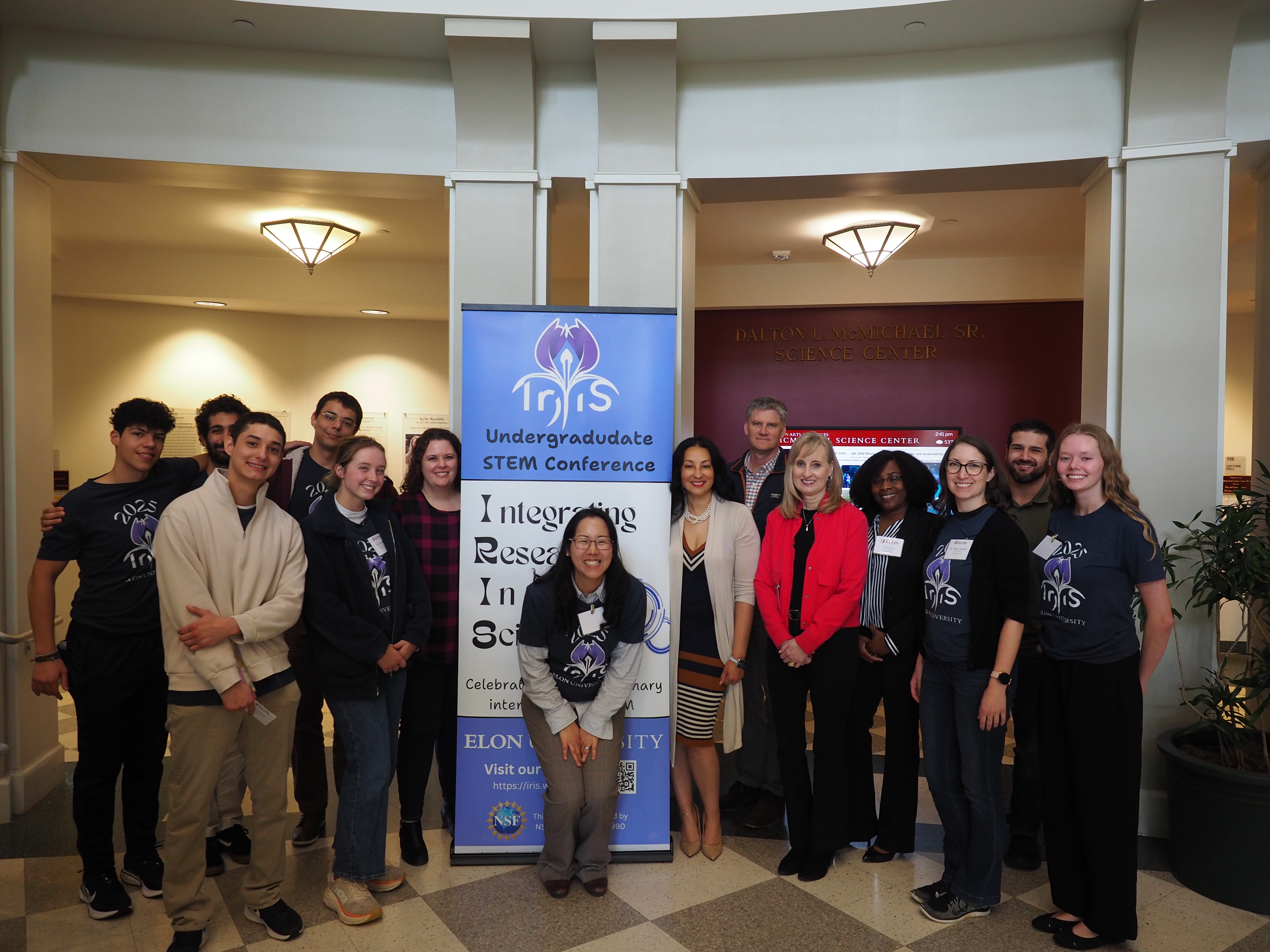
The IRIS was initially developed in 2017 and has been run at Wake Forest University annually until spring 2023, when Elon hosted the event for the first time. This year is the second time Elon is hosting the event. The Student Organizing Committee consists of Kelly Donovan ’26 (co-leader; applied mathematics and statistics), Mia Webdell ’26 (co-leader; biochemistry), Clayton McLamb ’25 (computer science and data analytics), Bailey Reutinger ’25 (statistics and biology), Rony Dahdal ’26 (computer science, mathematics and philosophy), and Murilo Ferreira Lopes ’27 (computer science) under the supervision of Elon faculty members Hwayeon Ryu and Nancy Scherich.
“IRIS was able to bring a lot of students from different backgrounds together. I did not realize the amount of time and planning it took to run a conference. I am grateful for my other committee members for helping put together IRIS 2025,” said Kelly Donovan, the co-leader of the student organizing team.
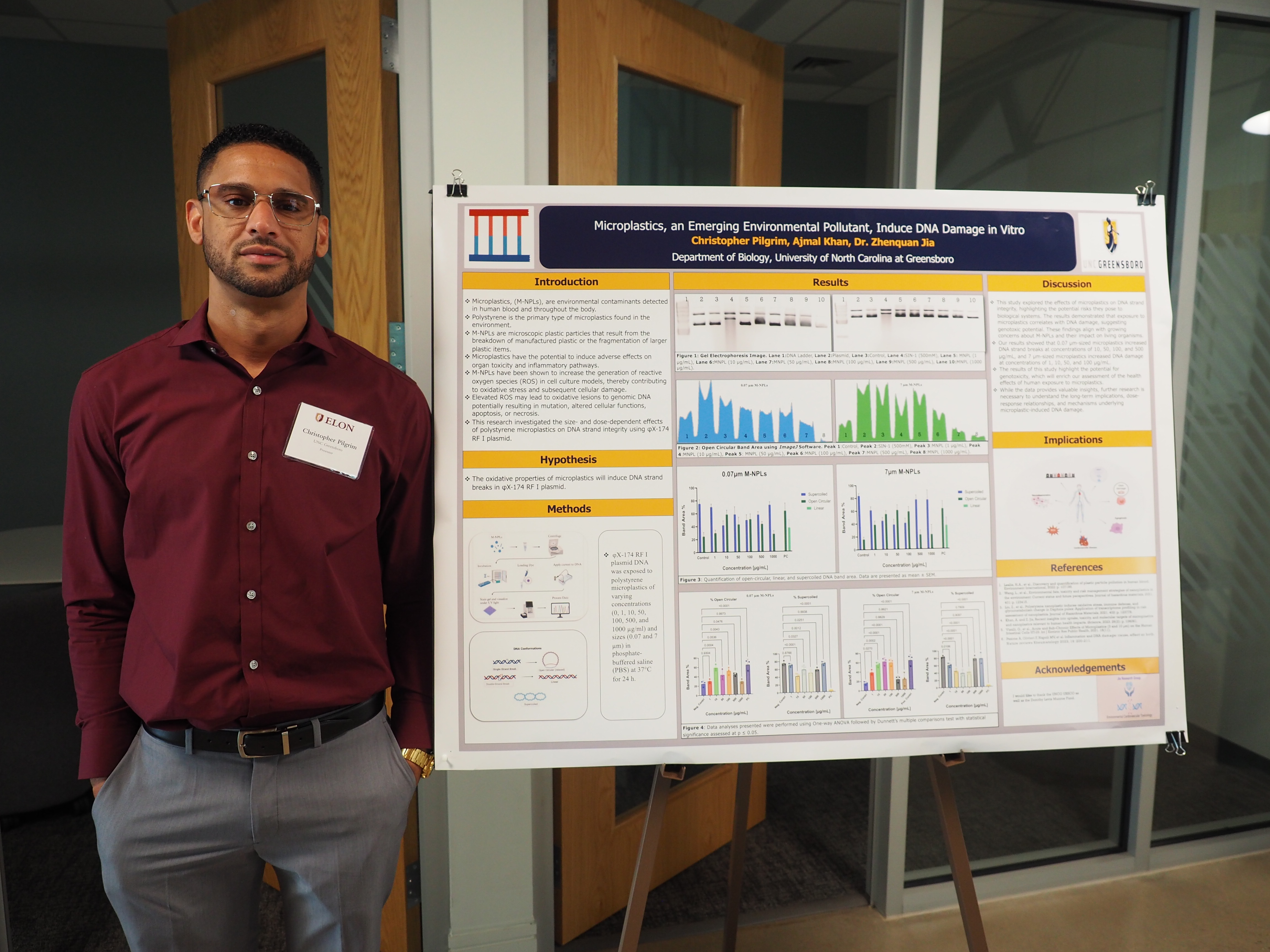
Almost 20 oral or poster presentations were given at this year’s IRIS event.
“Presenting my research at IRIS was a rewarding experience that deepened my appreciation for interdisciplinary collaboration and the creativity driving scientific discovery. The conference provided an excellent opportunity to make meaningful connections within the scientific community,” said Grady Cooke ’25, a physics major at Elon.
“I found IRIS as a way of opening Elon’s campus to student researchers from different universities, and was a unique way to engage, learn about, and bridge the gap between Elon and other academic communities,” said Rony Dahdal ’26.
IRIS is attended by students and faculty from regional colleges and universities. This year’s keynote talk, “Sifting Through Junk: Can AI/Machine Learning Help us Determine What Matters?” was given by Keriayn Smith, associate professor at the School of Data Science and Society, with a secondary appointment in the Department of Genetics in the School of Medicine at the University of North Carolina Chapel Hill. The keynote talk is followed by oral and poster presentations, and concludes with a panel session for both academia and industry.
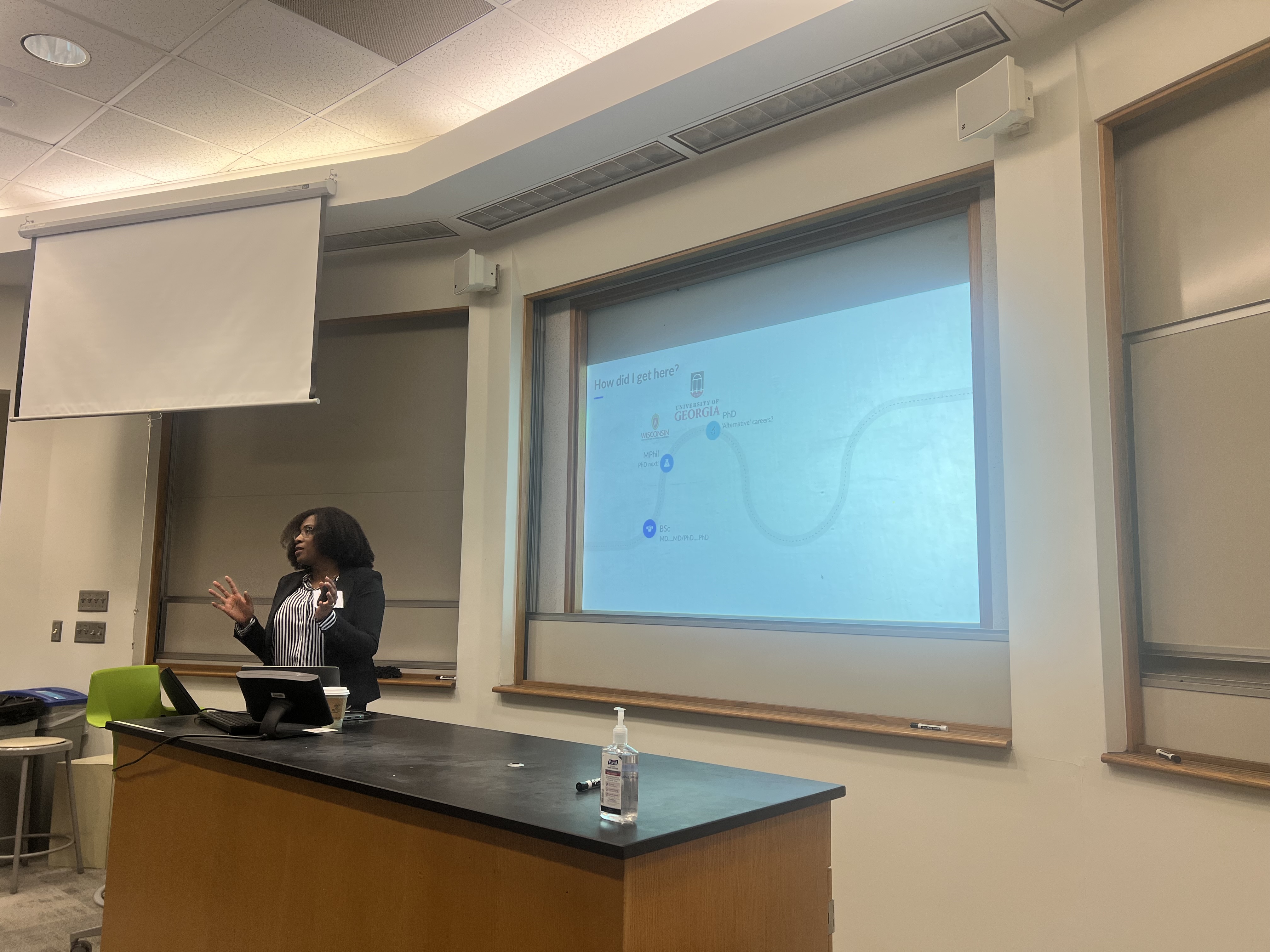
“I was really impressed by the quality of the presentations and the confidence students demonstrated when presenting their lectures and posters,” said Associate Professor of Exercise Science Matt Wittstein. “The diversity of topics also made the conference more fun, because there were plenty of opportunities to learn something new that the presenters were passionate to teach us about.”
“The IRIS conference allowed students to increase their networking skills while teaching them how to present their work to a wider audience. Developing the skills associated with presenting highly technical research to audiences from diverse backgrounds and interests is a challenge for even the most experienced researchers, and experiences like participating in IRIS provides undergraduates with this opportunity,” said Assistant Professor of Biology Efraín Rivera-Serrano.
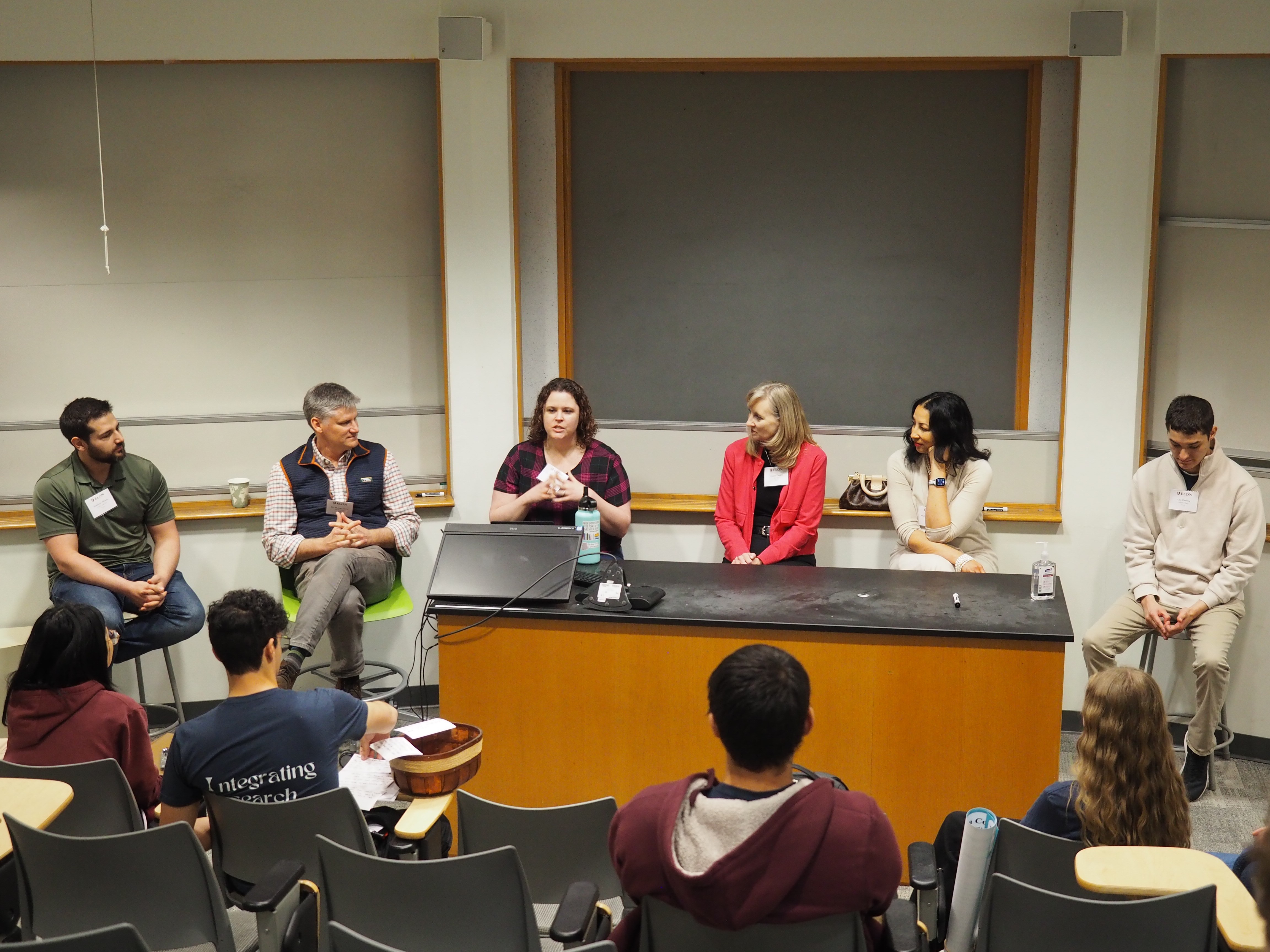
The list of faculty judges for both oral and poster sessions includes Wittstein, Rivera-Serrano, Assistant Professor of Biology Jessica Merricks, Professor of Biology and Environmental Studies Mike Kingston, Professor of Mathematics Todd Lee, Assistant Professor of Statistics Nic Bussberg and Assistant Professor of Nursing Stacey Thomas.
In spring 2027, IRIS will be held again at Elon with the goal of alternating hosting of the IRIS conference between Elon and Wake Forest University to establish the partnership between the two institutions and develop a STEM community in nearby regions.
To acknowledge the funding, the IRIS 2025 conference at Elon University was supported by a National Science Foundation grant.
